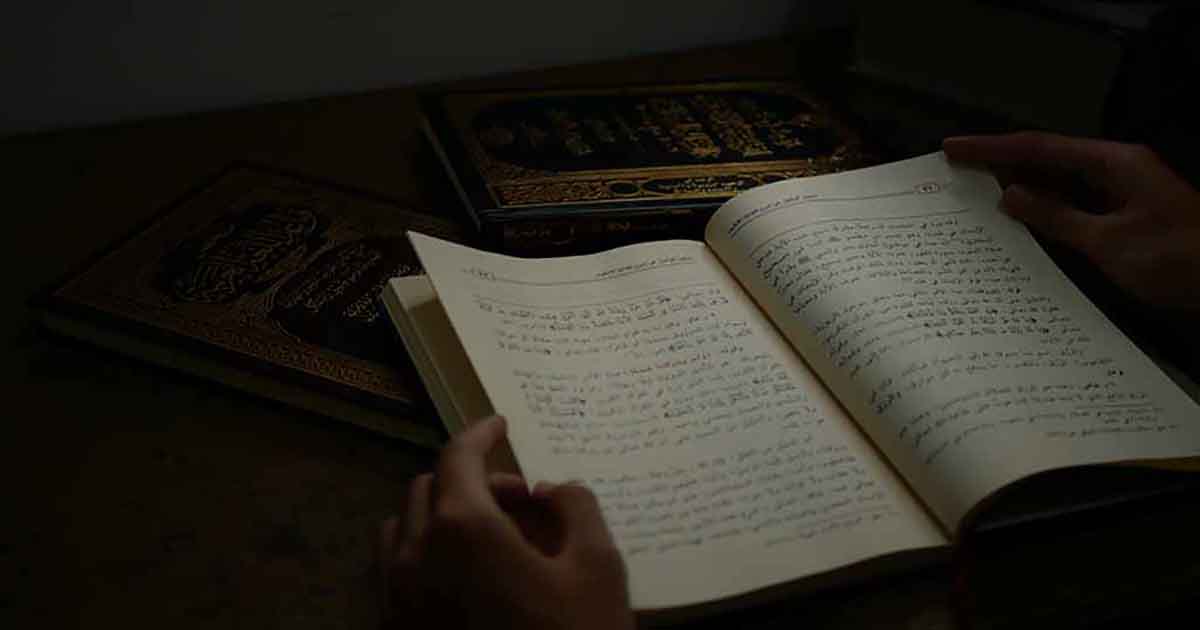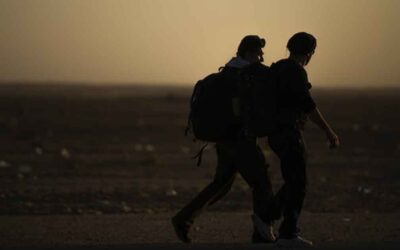It is quoted by Sayyid ibn Tāwoos in Malhoof that Imām Husayn (a.s.) sent a letter to a group of righteous noblemen of Basrā through his retainer named Sulaymān, whose agnomen was Abu Razeen, inviting them for assistance and obedience to him. Those included therein were Yazid bin Mas’ood Nahshali and Manzar bin Jārood Abadi.
Yazid bin Mas’ood then gathered the people of Bani Tameem, Bani Hanzalāh and Bani Sa’ad. When they came he said, “O people of Bani Tameem! What is my position and descent in your eyes”? They replied, “It is fair. By Allāh! You are a support of our backs and the prime of nobility, and hold a place in noble presence and you take lead in it.” Then he said, “I have gathered all of you here so that I may ask your opinion regarding a matter and invite your assistance for it.” They said, “By Allāh! We are your well-wishers and we shall not be reluctant to counsel you sincerely. You may say, so that we may know what it is.” Yazid bin Mas’ood said, “Mu’āwiyah has died, and we do not grieve nor regret his death, because the doors of injustice and tyranny have cracked and the pillars of oppression have been given a severe blow. He has made innovations in the form of (demanding) allegiance for his son (Yazid) and he was adamant about it, when how far from right is it what he had decided. He endeavored but was weakened and he asked for counsel and opinion from his friends, but they betrayed him.
Then his son Yazid who drinks wine and is wicked has arisen and has claimed to be the Caliph of the Muslims. He rules over them without their consent in spite of being an ignorant and foolish man, he cannot even recognize his own footsteps. I swear by Allāh, that fighting Yazid is more worthy than fighting with the polytheists. And this is Husayn bin Ali, the grandson of Prophet Muhammad (S). He is of genuine dignity, an honest counselor, a great intellectual, and is more worthy and rightful for the Caliphate. For he is an antecedent among the emigrants, a senior, and foremost in Religion, he is attached in proximity to the Prophet. He is affectionate towards the young and sympathetic towards the elders while being kind to others. He is a thorough Leader, and Paradise is attained through his medium, while he propagates through preaching and counsel. Hence do not close your eyes against the Light of Truth and do not fall into the pit of falsehood.
Sakhr bin Qays misled you on the day of (the battle of) Jamal and disgraced you, hence wash off the stains of disgrace from yourselves by assisting the grandson of the Prophet. By Allāh! None will withhold their hands from assisting him except that their progeny will be humiliated, deprived and abandoned. I have now worn the helmet for the battle and have fastened the armor. For the one who is not killed will ultimately die, and the one who flees from it will not escape it. Thus answer me well, may Allāh’s blessings be upon you.”
Hearing this the Bani Hanzalāh said, “O Abā Khālid! (referring to Yazid bin Mas’ood) We are the quiver of your arrows and the champions of the clan. If you hurl us (towards the enemy) we shall fall upon the target, and if you accompany us in the battlefield you shall emerge a victor. If you enter the depths of the sea we too shall accompany you, and turn to whichever side you turn to. We shall defend you with our swords and our bodies shall be your shield. We are at your disposal whenever you need us.”
Then Bani Sa’ad bin Yazid said, “O Abā Khālid! The most abhorred thing in our sight is opposing you and failing to accept your command. Verily Sakhr bin Qays had forbade us to fight (on the day of the battle of Jamal) and we were pleased by this act of ours and our dignity remained intact. You may give us respite so that we may counsel among ourselves and let you know our opinions regarding it.”
While the Bani Āmir bin Tameem said, “O Abā Khālid! We are the children of your father and your confederates. If you are displeased, we shall not remain satisfied, and if you leave, we shall not linger behind. Hence command us so that we may respond, and call us so that we may obey you. Verily command is with you.”
Then he told the Bani Sa’ad, “O Bani Sa’ad! By Allāh! Then if you are in doubt and you shall side with the Bani Umayyāh (and fail to assist Husayn), Allāh will never lift the sword away from your necks, while you still hold your swords.”
Then he (Yazid bin Mas’ood) wrote a reply to Imām Husayn (a.s.), “Now then! We have received you letter and have pondered over that which you have invited, that we may have our share of obedience to you and we may attain the excellence of assisting you. Allāh never lets the earth to remain empty of His Vicegerent, who is benevolent and the guide to the path of salvation. Verily you are Allāh’s proof over His creation and His trust upon the earth. You are a branch of the olive tree of Muhammad (S). He was the origin while you are the branch. Hasten to us with felicitations, for I have brought the necks of Bani Tameem under your command and they shall excel each other in your obedience like the thirsty Lions who make haste to drink water. Besides I have brought the Bani Sa’ad under your submission and have washed the filth from their hearts with (rain) water falling from the clouds.”
When Imām Husayn (a.s.) read the contents of the letter he said,
“What else do you desire. May Allāh grant you security on the day of fright (Qiyāmah) and quench your thirst on the day of extreme thirst and endear you.”
When Yazid bin Mas’ood was just preparing to proceed towards the Imām, he received the news of his martyrdom. Hence he lamented over the loss of this grace (of Martyrdom).
As regards Manzar bin Jārood, when he received the letter of Imām Husayn (a.s.) he brought it along with Imām’s messenger to the presence of Ubaydullāh bin Ziyād, for he feared that it might be a conspiracy by Ubaydullāh himself, while his daughter Bahriyah was the wife of Ubaydullāh. Ubaydullāh sent the messenger of Imām to the gallows and ascended the pulpit and recited a sermon, in which he admonished the people of Basrā against opposition and revolt. That night he spent in Basrā and the next morning he appointed his brother Usmān bin Ziyād his Vicegerent and hastened towards Kufā.
Tabari says that Hishām said that Abu Makhnaf related to me from Sa’qib bin Zuhayr, from Abu Usmān Nahdi that Imām Husayn (a.s.) wrote a similar letter to the noblemen of the five divisions of Basrā and their chiefs through his retainer named Sulaymān. The letters with similar contents were addressed to Mālik bin Musme’ Bakri, Ahnaf bin Qays, Manzar bin Jārood, Mas’ood bin Umro, Qays bin Haysam and Umar bin Abdullāh bin Mu’ammar,
“Now then! Verily Allāh has chosen Prophet Muhammad (S) above all His creatures and granted him (the prestige of) Prophethood and chose him for the Apostleship. Then the Almighty took him towards His mercy (death) after the Prophet having guided all people towards the truth, and after having propagated the message for which he was sent. Thus we are his Household (Ahlul Bayt), friends, vicegerents and his successors and are more worthy of succeeding him than anyone else. Then the nation has tried to precede us in this matter and we helplessly withdrew to avoid dissentions. We cherish peace although we consider ourselves more worthy and deserving of it (Caliphate) than them. I have sent towards you my messenger and I invite you to the Book of Allāh and the tradition (sunnah) of the Prophet, for I see that the traditions (sunnah) have been destroyed and innovations have crept up. Hence if you pay heed to my words and obey my command, then I shall guide you to the Righteous path. And peace be upon you and Allāh’s blessings and mercy.”
Whoever read this letter among the noblemen, they kept it concealed except Manzar bin Jārood who feared that this might be a conspiracy of Ubaydullāh. Hence he took the messenger to Ubaydullāh on the same night of the morning on which Ubaydullāh left for Kufā. He gave the letter to Ubaydullāh so he could read it. After reading the letter Ubaydullāh gave ordered the execution of the messenger and himself went on the pulpit of Basrā and after praising and glorifying Allāh said,
“Now then! By Allāh! A ravished Camel is not at par with me, nor do I flee from the sound of an empty water-skin. I myself am a wrath for my adversaries and a fatal poison for those who oppose me. The one who flings a clod of mud towards me shall have the reward of a stone (I shall deal severely with the one who even minutely opposes me).
O people of Basrā! The commander of the faithful (referred to Yazid) has bestowed me the guardianship of Kufā and tomorrow I shall leave for there. I appoint my brother Usmān bin Ziyād bin Abu Sufyān as my Vicegerent upon you. Beware, remain away from opposition and mischief, for by Allāh, besides Whom there is no other Deity, if I hear regarding the opposition of anyone amongst you, I shall surely kill him along with the chief of his clan, and his guardians. I hold the present ones responsible for those who are absent until stability is restored, and none of those opposing or disliking me remains among you. I am the son of Ziyād, and am more similar to my father than anyone who has ever set his foot upon the earth, and am not like my maternal or paternal uncle.”
Then he left Basrā and proceeded towards Kufā leaving behind his brother Usmān in his place.
Azdi relates that Abul Makhariq Rasbee says that some of the Shi’āh of Basrā gathered at the house of a woman of the tribe of Abdul Qays. The name of the woman was Mariya, daughter of Sa’ad or Manqaz, who was a Shi’āh. Her house was a place of gathering for them and they associated with one another. When Ubaydullāh bin Ziyād was informed that Imām Husayn (a.s.) was proceeding towards Irāq, he wrote to his superintendent that he should appoint guards and block the roads. Yazid bin Nabeet, who was from the clan of Abdul Qays, decided to go to defend Imām Husayn (a.s.). He had ten sons whom he asked as to who would accompany him. Two of his sons viz. Abdullāh and Ubaydullāh agreed to come. When the Shi’āh had gathered at the house of Mariya, he disclosed his intention to leave in the presence of his comrades. His friends said that they feared Ubaydullāh’s men against him. To which he replied that,
“When the hooves of my Camel sets upon the deserts, I do not fear their pursuit”,
and he left and paved the way of success until he reached Imām Husayn (a.s.) at Makkāh. He went to the tent of Imām Husayn (a.s.) at Abtah. When Imām Husayn (a.s.) received news of his arrival, he arose to receive him. When he came near the Imām’s tent he was told that Imām had already left to meet him at his place. He returned back and saw Imām sitting at the door waiting for him and he (a.s.) said,
“In the Grace of Allāh and His Mercy, in that they should rejoice.” (Surah al-Yunus, 10:58)
He then saluted him and sat down. Then he related his intention to the Imām, who prayed for his well-being. He remained with the Imām till Karbalā and fought there and was martyred along with both of his sons.
References
Nafasul Mahmum, Relating to the heart rending tragedy of Karbala’, Sheikh Abbas Qummi, ISLAMIC STUDY CIRCLE, Mumbai, India





0 Comments